
Volume XIV, Issue XVIII
The Ministry of Building Things
I'll bet if I asked you to think of some different types of ministry and ways to build the Kingdom of G-d, you probably wouldn't think of Economic Development. Pastor Tim Keller, in his book: Resources for Deacons, sees it clearly as a part of the Diaconal ministry. Our church helps women in Zambia get sewing machines. To be sure, the gift of the ability to earn their living as seamstresses is an act of ministry to these ladies.
But think bigger! THYME presents the story of how a nation turned from a great evil and one city suffered greatly in doing so. G-d provided a provider! Then G-d provided provision for the provider by inspiring great innovation that came to revitalize that great city. Should we dare to pray for such innovation and inspiration in our own day?
Isambard Kingdom Brunel
What a Nineteenth Century Innovator Can Teach Us Now
© 2013 The Kirchman Studio, All rights reserved.
They say that the condition for a miracle is difficulty, but the condition for a great miracle is impossibility” -- Angus Buchan, “G-d's Farmer”
When William Wilberforce [1.] had ended the slave trade in the British Empire, he had thrown the city of Bristol, England into economic depression. The port there was heavily devoted to that wretched business and suffered heavily when it was brought to a sudden halt. The unintended consequence had been a rise in children condemned to a life of poverty. Ending the vile business of enslaving Africa's children had resulting in England's society spurning the needs of her own. Into this world came George Müller [2.], who, relying on faith in G-d alone, provided redemption for thousands of orphans. Many of these children were cast-offs of a society in economic despair.
George Müller [3.] had seen the wretched street urchins most people despised as jewels to be polished. Muller, relying solely on Divine provision, built five large houses for Orphans at Ashley Downs in Bristol, England. He trained the girls to be nurses, teachers, clerical workers and domestics. He apprenticed all the boys in various trades. He was excoriated for training these unwanted children "above their station." He ignored the critics.
Müller looked to G-d alone, but Bristol needed an outfowing of Divine provision to provide for her children. G-d's provision for Bristol was to come in the form of inspiration and innovation, embodied in the work of a young pioneer of civil engineering. He also ignored his critics.
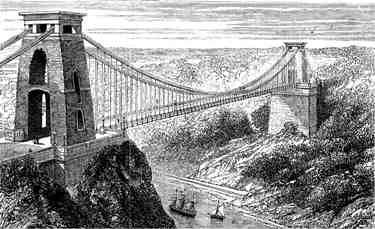
Brunel's Clifton Suspension Bridge became the symbol of the City of Bristol.
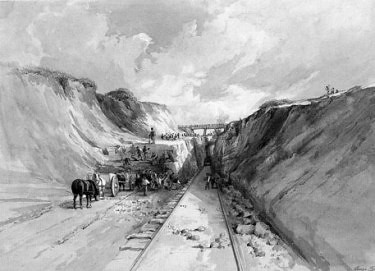
Building the Great Western Railway.
In 1831, 24 year old Isambard Kingdom Brunel [4.] was awarded a contract to bridge the Avon Gorge. It was the dream of a prosperous wine merchant who provided the initial funding. The completed bridge would become the symbol of the city, but lack of funding dogged the project. It took thirty years to complete it. For years only the towers stood completed. In 1833 Brunel began work on the Great Western Railway, which would become the instrument of Bristol's economic revitalization. The nicknames: "Great Way Round" and "G-d's Wonderful Railway" seem to describe well Brunel's great work.
Brunel was an innovator. He probably experienced as many failures as successes in his short lifetime. Born on April 9, 1806, the son of Sir Marc Brunel, he assisted his father in building a tunnel under the Thames. He would later become the resident engineer of that project. At twenty years of age, he designed a suspension bridge to cross the Avon river. A modified version of his plan was actually constructed.
At 26, Brunel was building the Great Western Railway, commissioned to maintain Bristol's importance as a port and position her for trade with America. This wide-gauge railroad linked Bristol and Western regions of England to London. Bristol's prosperity as a port was assured and the work of Müller created solid citizens with strong spiritual foundations to benefit.
But Brunel was not content to simply build a better railway. He looked across the Atlantic, envisioning fleets of ocean greyhounds -- great steamships that would complete the linking of his Great Western Railway to America! The S. S. Great Britain was his creation. It was the first metal-hulled propeller-driven ocean ship and became the prototype for modern ocean liners.
Building the South Devon Railway as a spur to the Great Western, Brunel experimented with an alternative to steam engines -- Vacuum tube powered trains. Stationary vacuum plants evacuated tubes laid along the center of the track that powered the movement of trains.

Brunel's 'Atmospheric Railway.'
The technology required the use of leather flaps to seal the vacuum pipes. The natural oils were drawn out of the leather by the vacuum, making the leather vulnerable to water, rotting it and breaking the fibres when it froze. It had to be kept supple with tallow, which is attractive to rats. The flaps were eaten, and vacuum operation lasted less than a year, from 1847 (experimental service began in September; operations from February 1848) to 10 September 1848.[45] It has been suggested that the whole project was an expensive flop. In Brunel's favour, it has been noted that he had the courage to call a halt to the venture instead of struggling on with it at greater cost." -- Wikipedia
Like alternative transportation prototypes of our day, the vacuum tube system was more expensive. The accounts of the SDR for 1848 show that atmospheric traction cost 3s 1d (three shillings and one penny) per mile compared to 1s 4d/mile for conventional steam power.Though considered a failure at the time, vacuum powered trains may have been a distant precursor to Evacuated Tube Technology [5.] which is now being developed to move entire transport capsules through large tubes -- essentially powered in the same way as Brunel's South Devon train. Brunel was simply two Centuries before his time on this.
What can we learn from Brunel today? Plenty! Inspiration and innovation are needed now as they were needed then. Brunel teaches us valuable lessons about expanding vision with proven technologies and wisely exploring alternatives (and abandoning them when they do not work as planned).
Praying people see the diaconate role of economic development as an integral part of G-d's provision. In “Resources for Deacons, Love Expressed Through Mercy Ministries,” [6.] Tim Keller states his belief in three “levels” of mercy in diaconal ministry:
The first Level Is Simple Relief: That is taking care of the immediate need.
The Second Level Is Economic Development: That is teaching the poor how to get out of poverty by teaching them how to handle money, property, etc. and furnishing them with the means to do so. “Not handouts, but ownership is the way to break the cycle of poverty.”
The Third Level Is Social Reform: Christians should be involved in the culture in an effort to change the social structure.
We see it very localized in a place like Zambia, where people of faith instruct widows to become seamstresses (and people in America gift them with sewing machines). But, can we believe G-d for ever greater inspiration? What vision would G-d give us for our family, our company of employment, our city and county... and beyond? Müller said "the age of miracles is not past." Angus Buchan [7.], in the turmoil of Zambia and South Africa, looked to G-d for inspiration. G-d met him in a corn field where he learned the power of prayer!
Buchan had packed his family up during the unrest in Zambia in the late 'seventies and moved them to South Africa. A successful farmer in Zambia, he felt that he would be happy if he could acquire another farm in South Africa. It didn't. Experiencing deep depression, Buchan was angry and confused. Wandering into a lay-witness Sunday at the local Methodist Church, Angus heard builders, tradesmen and fellow farmers tell of what Jesus meant in their lives. For the first time he saw men crying, he wept unashamedly himself as he responded to an altar call. He took the Lord seriously about the changed life promise.
Buchan went back to his farm and learned to pray in his own corn field. Then he sought to minister to his Zulu workers. His farm manager, Simeon Bhengu, told him: "that's women's religion..." But G-d met Angus and spoke through his friendship with Simeon. Today the men are brothers in faith and brothers in every way. "My children are his and his are mine." Angus says of his Zulu brother. Angus expanded his farming operations and G-d's miraculous provision was seen at every turn. The movie "Faith like Potatoes" is the true story of Angus Buchan and it is quite inspiring! Buchan used machinery but avoided totally mechanizing the farm, looking to provide steady employment to his Zulu neighbors.
In the early 1980's Buchan became aware of a new tragic development. AIDS was ravaging families and creating untold numbers of orphans. Buchan reached out to these orphans but had no place to house them. A local school had temporary classrooms they were going to demolish and Angus received permission to take them apart and reassemble them at Shalom, which he had named his complex at the farm. At first the children lived in dormitories but gradually Angus was able to create "houses" where one "mother" cared for a smaller number.
South Africa in her recent history has experienced much uncertainty and Buchan's experience is instructive as we look to address the turmoil in our own country today. Isambard Kingdom Brunel should serve as an inspiration as well.
Let no man despise thy youth; but be thou an example of the believers, in word, in conversation, in charity, in spirit, in faith, in purity." -- 1 Timothy 4:12
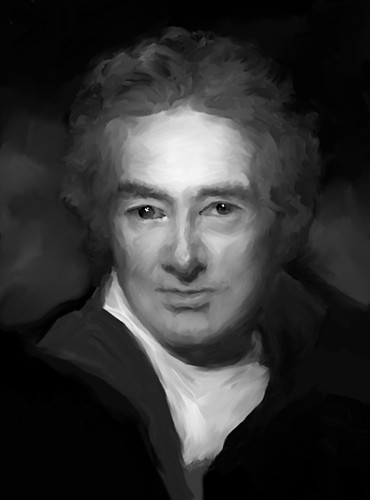
Public Service as a Holy Calling
The Life of William Wilberforce
If we define patriotism as the dangerous and domineering tendency to promote not the nation’s well-being, but its glory at the cost of other nations, a tendency that leads to oppression and conquest, then we would have to say that Christianity is an enemy of patriotism. But if we understand patriotism to give us a love for our own land, a love that never confines our concern for humanity to our political boundaries, then Christianity gives us abundant encouragement to this brand of patriotic feeling.” – William Wilberforce
If we find that we are well-liked and popular, then we should think that we have got more than we bargained for – and then watch ourselves all the more carefully for fear we become too fond of something that we will soon be asked to give up. We need to consider often that worldly fame never lasts; we may all have to submit ourselves sooner or later to disgrace and criticism, so that we are not taken by surprise. We need to cultivate in our hearts the desire for “that honour which cometh from God,” for this is the most effective means of bringing our thoughts into perspective in regards to the love of human approval.” – William Wilberforce
In the Bible we learn the painful lesson of human degradation and unworthiness. We learn that humility and contrition are the emotions best suited to our fallen condition and most acceptable in the sight of our Creator. In addition, we learn that we should habitually cherish and cultivate these feelings, while we put off our arrogance and self-importance. We are to studiously maintain a continual sense that any natural advantages we may have over others means nothing in God’s eyes; instead, His love for us depends totally on His own unmerited mercy.” – William Wilberforce
Mortify the flesh, with its affections and lusts,” is the Christian rule, but most modern Christians practice a soft luxurious life of habitual indulgence. We seem to think that a healthy disciplined self-denial went out of style years ago along with the austerities once practiced in monasteries. Christianity calls us to a state of alert diligence and active service.” – William Wilberforce
It is amazing to ponder the fact that these thoughts were penned two Centuries ago, for they speak eloquently to the time we live in.
(to be continued)
The [Amazing] Grace Option
A Model for the Church Today
[click to read]
By Bob Kirchman
Rod Dreher, [1.] in a new book is promoting what he calls The Benedictine Option as the direction the church should take today. The Benedictines, followers of the man who would become St. Benedict sought as the Roman Empire declined “How to live life as a whole. Not a life of worldly success so much as one of human success.” But are we living in the last days of Rome? Certainly philosophers such as Alasdair MacIntyre [2.] can draw parallels, suggesting that the creation of smaller communities is essential for the preservation of the Faith. New Monasticism has been around for a while. Its desire is to preserve the vitality of true Christian Faith in a culture that is hostile to it and somehow be an influence to those outside its walls toward the light of the Divine.
William Wilberforce has been the subject of a series of essays I have recently written... mainly around his own quotes; and I suggest that his world was actually not at all different from the world we live in today. Britain had become the greatest empire in the world and as such was also sinking into softness and depravity, Wilberforce himself was the son of a prosperous merchant and had no need to worry about providing for himself. He partied his way through school and entered a career in politics. He cared nothing for righting any wrongs or performing any great works. But the young Member of Parliament went on to find Faith and the rest is history. (read more)

Dogwood Flower. Photo by Bob Kirchman
From the Earth to the Moon
By Jules Verne
CHAPTER X, ONE ENEMY v.
TWENTY-FIVE MILLIONS OF FRIENDS
The American public took a lively interest in the smallest details of the enterprise of the Gun Club. It followed day by day the discussion of the committee. The most simple preparations for the great experiment, the questions of figures which it involved, the mechanical difficulties to be resolved-- in one word, the entire plan of work-- roused the popular excitement to the highest pitch.
The purely scientific attraction was suddenly intensified by the following incident:
We have seen what legions of admirers and friends Barbicane's project had rallied round its author. There was, however, one single individual alone in all the States of the Union who protested against the attempt of the Gun Club. He attacked it furiously on every opportunity, and human nature is such that Barbicane felt more keenly the opposition of that one man than he did the applause of all the others. He was well aware of the motive of this antipathy, the origin of this solitary enmity, the cause of its personality and old standing, and in what rivalry of self-love it had its rise.
This persevering enemy the president of the Gun Club had never seen. Fortunate that it was so, for a meeting between the two men would certainly have been attended with serious consequences. This rival was a man of science, like Barbicane himself, of a fiery, daring, and violent disposition; a pure Yankee. His name was Captain Nicholl; he lived at Philadelphia.
Most people are aware of the curious struggle which arose during the Federal war between the guns and armor of iron-plated ships. The result was the entire reconstruction of the navy of both the continents; as the one grew heavier, the other became thicker in proportion. The Merrimac, the Monitor, the Tennessee, the Weehawken discharged enormous projectiles themselves, after having been armor-clad against the projectiles of others.
In fact they did to others that which they would not they should do to them-- that grand principle of immortality upon which rests the whole art of war.
Now if Barbicane was a great founder of shot, Nicholl was a great forger of plates; the one cast night and day at Baltimore, the other forged day and night at Philadelphia. As soon as ever Barbicane invented a new shot, Nicholl invented a new plate; each followed a current of ideas essentially opposed to the other. Happily for these citizens, so useful to their country, a distance of from fifty to sixty miles separated them from one another, and they had never yet met. Which of these two inventors had the advantage over the other it was difficult to decide from the results obtained. By last accounts, however, it would seem that the armor-plate would in the end have to give way to the shot; nevertheless, there were competent judges who had their doubts on the point.
At the last experiment the cylindro-conical projectiles of Barbicane stuck like so many pins in the Nicholl plates. On that day the Philadelphia iron-forger then believed himself victorious, and could not evince contempt enough for his rival; but when the other afterward substituted for conical shot simple 600-pound shells, at very moderate velocity, the captain was obliged to give in. In fact, these projectiles knocked his best metal plate to shivers.
Matters were at this stage, and victory seemed to rest with the shot, when the war came to an end on the very day when Nicholl had completed a new armor-plate of wrought steel. It was a masterpiece of its kind, and bid defiance to all the projectiles of the world. The captain had it conveyed to the Polygon at Washington, challenging the president of the Gun Club to break it. Barbicane, peace having been declared, declined to try the experiment.
Nicholl, now furious, offered to expose his plate to the shock of any shot, solid, hollow, round, or conical. Refused by the president, who did not choose to compromise his last success.
Nicholl, disgusted by this obstinacy, tried to tempt Barbicane by offering him every chance. He proposed to fix the plate within two hundred yards of the gun. Barbicane still obstinate in refusal. A hundred yards? Not even seventy-five!
At fifty then!" roared the captain through the newspapers. "At twenty-five yards! and I'll stand behind!"
Barbicane returned for answer that, even if Captain Nicholl would be so good as to stand in front, he would not fire any more.
Nicholl could not contain himself at this reply; threw out hints of cowardice; that a man who refused to fire a cannon-shot was pretty near being afraid of it; that artillerists who fight at six miles distance are substituting mathematical formulae for individual courage.
To these insinuations Barbicane returned no answer; perhaps he never heard of them, so absorbed was he in the calculations for his great enterprise.
When his famous communication was made to the Gun Club, the captain's wrath passed all bounds; with his intense jealousy was mingled a feeling of absolute impotence. How was he to invent anything to beat this 900-feet Columbiad? What armor-plate could ever resist a projectile of 30,000 pounds weight? Overwhelmed at first under this violent shock, he by and by recovered himself, and resolved to crush the proposal by weight of his arguments.
He then violently attacked the labors of the Gun Club, published a number of letters in the newspapers, endeavored to prove Barbicane ignorant of the first principles of gunnery. He maintained that it was absolutely impossible to impress upon any body whatever a velocity of 12,000 yards per second; that even with such a velocity a projectile of such a weight could not transcend the limits of the earth's atmosphere. Further still, even regarding the velocity to be acquired, and granting it to be sufficient, the shell could not resist the pressure of the gas developed by the ignition of 1,600,000 pounds of powder; and supposing it to resist that pressure, it would be less able to support that temperature; it would melt on quitting the Columbiad, and fall back in a red-hot shower upon the heads of the imprudent spectators.
Barbicane continued his work without regarding these attacks.
Nicholl then took up the question in its other aspects. Without touching upon its uselessness in all points of view, he regarded the experiment as fraught with extreme danger, both to the citizens, who might sanction by their presence so reprehensible a spectacle, and also to the towns in the neighborhood of this deplorable cannon. He also observed that if the projectile did not succeed in reaching its destination (a result absolutely impossible), it must inevitably fall back upon the earth, and that the shock of such a mass, multiplied by the square of its velocity, would seriously endanger every point of the globe. Under the circumstances, therefore, and without interfering with the rights of free citizens, it was a case for the intervention of Government, which ought not to endanger the safety of all for the pleasure of one individual.
In spite of all his arguments, however, Captain Nicholl remained alone in his opinion. Nobody listened to him, and he did not succeed in alienating a single admirer from the president of the Gun Club. The latter did not even take the pains to refute the arguments of his rival.
Nicholl, driven into his last entrenchments, and not able to fight personally in the cause, resolved to fight with money. He published, therefore, in the Richmond Inquirer a series of wagers, conceived in these terms, and on an increasing scale:
No. 1 ($1,000).-- That the necessary funds for the experiment of the Gun Club will not be forthcoming.
No. 2 ($2,000).-- That the operation of casting a cannon of 900 feet is impracticable, and cannot possibly succeed.
No. 3 ($3,000).-- That is it impossible to load the Columbiad, and that the pyroxyle will take fire spontaneously under the pressure of the projectile.
No. 4 ($4,000).-- That the Columbiad will burst at the first fire.
No. 5 ($5,000).-- That the shot will not travel farther than six miles, and that it will fall back again a few seconds after its discharge.
It was an important sum, therefore, which the captain risked in his invincible obstinacy. He had no less than $15,000 at stake.
Notwithstanding the importance of the challenge, on the 19th of May he received a sealed packet containing the following superbly laconic reply: "BALTIMORE, October 19. "Done. "BARBICANE."
CHAPTER XI, FLORIDA AND TEXAS
One question remained yet to be decided; it was necessary to choose a favorable spot for the experiment. According to the advice of the Observatory of Cambridge, the gun must be fired perpendicularly to the plane of the horizon, that is to say, toward the zenith. Now the moon does not traverse the zenith, except in places situated between 0@ and 28@ of latitude. It became, then, necessary to determine exactly that spot on the globe where the immense Columbiad should be cast.
On the 20th of October, at a general meeting of the Gun Club, Barbicane produced a magnificent map of the United States. "Gentlemen," said he, in opening the discussion, "I presume that we are all agreed that this experiment cannot and ought not to be tried anywhere but within the limits of the soil of the Union. Now, by good fortune, certain frontiers of the United States extend downward as far as the 28th parallel of the north latitude. If you will cast your eye over this map, you will see that we have at our disposal the whole of the southern portion of Texas and Florida."
It was finally agreed, then, that the Columbiad must be cast on the soil of either Texas or Florida. The result, however, of this decision was to create a rivalry entirely without precedent between the different towns of these two States.
The 28th parallel, on reaching the American coast, traverses the peninsula of Florida, dividing it into two nearly equal portions. Then, plunging into the Gulf of Mexico, it subtends the arc formed by the coast of Alabama, Mississippi, and Louisiana; then skirting Texas, off which it cuts an angle, it continues its course over Mexico, crosses the Sonora, Old California, and loses itself in the Pacific Ocean.
It was, therefore, only those portions of Texas and Florida which were situated below this parallel which came within the prescribed conditions of latitude.
Florida, in its southern part, reckons no cities of importance; it is simply studded with forts raised against the roving Indians. One solitary town, Tampa Town, was able to put in a claim in favor of its situation.
In Texas, on the contrary, the towns are much more numerous and important. Corpus Christi, in the county of Nueces, and all the cities situated on the Rio Bravo, Laredo, Comalites, San Ignacio on the Web, Rio Grande City on the Starr, Edinburgh in the Hidalgo, Santa Rita, Elpanda, Brownsville in the Cameron, formed an imposing league against the pretensions of Florida. So, scarcely was the decision known, when the Texan and Floridan deputies arrived at Baltimore in an incredibly short space of time. From that very moment President Barbicane and the influential members of the Gun Club were besieged day and night by formidable claims. If seven cities of Greece contended for the honor of having given birth to a Homer, here were two entire States threatening to come to blows about the question of a cannon.
The rival parties promenaded the streets with arms in their hands; and at every occasion of their meeting a collision was to be apprehended which might have been attended with disastrous results. Happily the prudence and address of President Barbicane averted the danger. These personal demonstrations found a division in the newspapers of the different States. The New York Herald and the Tribune supported Texas, while the Times and the American Review espoused the cause of the Floridan deputies. The members of the Gun Club could not decide to which to give the preference.
Texas produced its array of twenty-six counties; Florida replied that twelve counties were better than twenty-six in a country only one-sixth part of the size.
Texas plumed itself upon its 330,000 natives; Florida, with a far smaller territory, boasted of being much more densely populated with 56,000.
The Texans, through the columns of the Herald claimed that some regard should be had to a State which grew the best cotton in all America, produced the best green oak for the service of the navy, and contained the finest oil, besides iron mines, in which the yield was fifty per cent. of pure metal.
To this the American Review replied that the soil of Florida, although not equally rich, afforded the best conditions for the moulding and casting of the Columbiad, consisting as it did of sand and argillaceous earth.
That may be all very well," replied the Texans; "but you must first get to this country. Now the communications with Florida are difficult, while the coast of Texas offers the bay of Galveston, which possesses a circumference of fourteen leagues, and is capable of containing the navies of the entire world!"
A pretty notion truly," replied the papers in the interest of Florida, "that of Galveston bay below the 29th parallel! Have we not got the bay of Espiritu Santo, opening precisely upon the 28th degree, and by which ships can reach Tampa Town by direct route?"
A fine bay; half choked with sand!"
Choked yourselves!" returned the others.
Thus the war went on for several days, when Florida endeavored to draw her adversary away on to fresh ground; and one morning the Times hinted that, the enterprise being essentially American, it ought not to be attempted upon other than purely American territory.
To these words Texas retorted, "American! are we not as much so as you? Were not Texas and Florida both incorporated into the Union in 1845?"
Undoubtedly," replied the Times; "but we have belonged to the Americans ever since 1820."
Yes!" returned the Tribune; "after having been Spaniards or English for two hundred years, you were sold to the United States for five million dollars!"
Well! and why need we blush for that? Was not Louisiana bought from Napoleon in 1803 at the price of sixteen million dollars?"
Scandalous!" roared the Texas deputies.
A wretched little strip of country like Florida to dare to compare itself to Texas, who, in place of selling herself, asserted her own independence, drove out the Mexicans in March 2, 1846, and declared herself a federal republic after the victory gained by Samuel Houston, on the banks of the San Jacinto, over the troops of Santa Anna!-- a country, in fine, which voluntarily annexed itself to the United States of America!"
Yes; because it was afraid of the Mexicans!" replied Florida.
Afraid!" From this moment the state of things became intolerable. A sanguinary encounter seemed daily imminent between the two parties in the streets of Baltimore. It became necessary to keep an eye upon the deputies.
President Barbicane knew not which way to look. Notes, documents, letters full of menaces showered down upon his house. Which side ought he to take? As regarded the appropriation of the soil, the facility of communication, the rapidity of transport, the claims of both States were evenly balanced. As for political prepossessions, they had nothing to do with the question.
This dead block had existed for some little time, when Barbicane resolved to get rid of it all at once. He called a meeting of his colleagues, and laid before them a proposition which, it will be seen, was profoundly sagacious.
On carefully considering," he said, "what is going on now between Florida and Texas, it is clear that the same difficulties will recur with all the towns of the favored State. The rivalry will descend from State to city, and so on downward. Now Texas possesses eleven towns within the prescribed conditions, which will further dispute the honor and create us new enemies, while Florida has only one. I go in, therefore, for Florida and Tampa Town."
This decision, on being made known, utterly crushed the Texan deputies. Seized with an indescribable fury, they addressed threatening letters to the different members of the Gun Club by name. The magistrates had but one course to take, and they took it. They chartered a special train, forced the Texans into it whether they would or no; and they quitted the city with a speed of thirty miles an hour.
Quickly, however, as they were despatched, they found time to hurl one last and bitter sarcasm at their adversaries.
Alluding to the extent of Florida, a mere peninsula confined between two seas, they pretended that it could never sustain the shock of the discharge, and that it would "bust up" at the very first shot.
Very well, let it bust up!" replied the Floridans, with a brevity of the days of ancient Sparta.
(to be continued)
Monuments to Washington
Paintings by Bob Kirchman
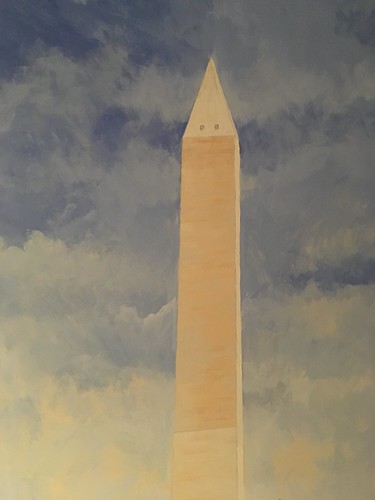
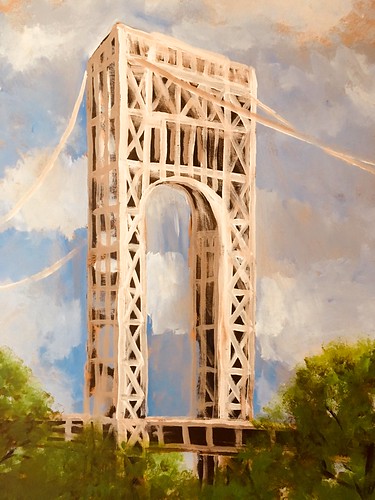
Top: Inscribed in the Capstone of the Washington Monument are the words: "LAUS DEO," meaning "Glory to G-d!" Above: The Roman Arched Towers of the George Washington Bridge were originally designed to be faced with granite. The bridge was built during the Great Depression and the granite was not installed as it was considered an unnecessary expense.
Isambard Kingdom Brunel
Faith and Beauty IV
Seeing the Divine in the Creation
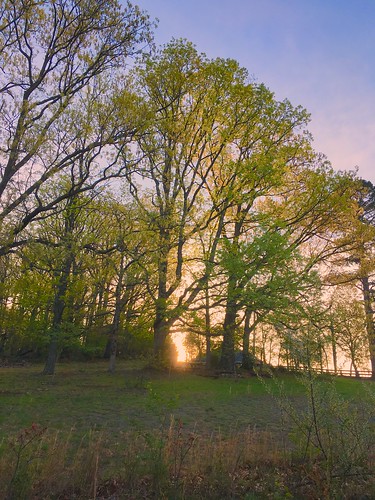
For ye shall go out with joy, and be led forth with peace: the mountains and the hills shall break forth before you into singing, and all the trees of the field shall clap their hands.” – Isaiah 55:12
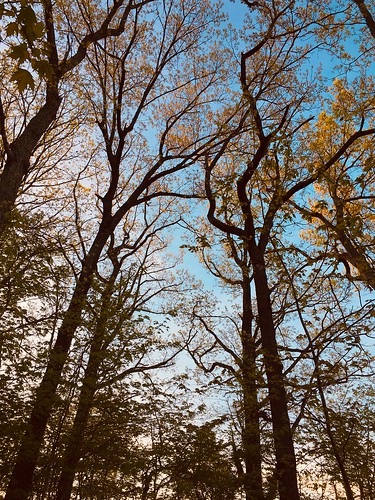

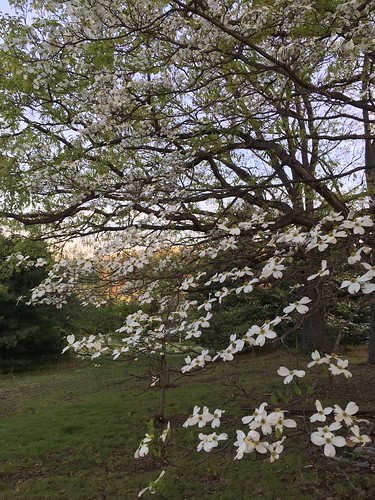


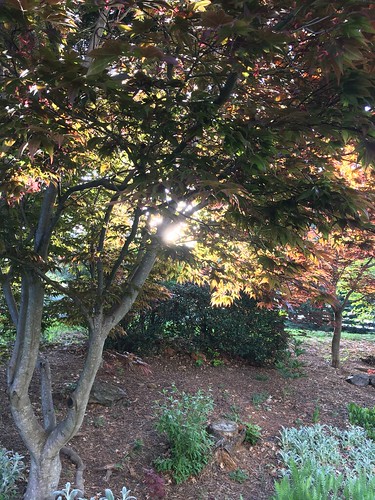
Photos by Bob Kirchman.
